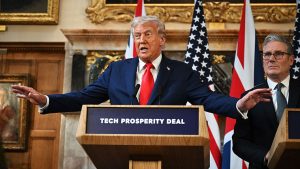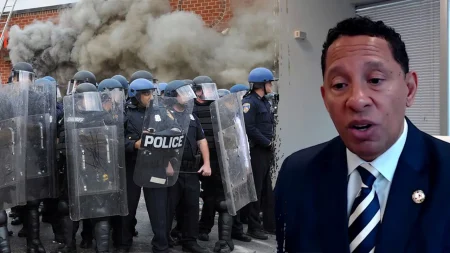U.S. Executives Meet at Kennedy Center to Promote Saudi Arabian Deals
American business leaders convened at the prestigious Kennedy Center for a high-profile event aimed at fostering economic partnerships with Saudi Arabia. The gathering brought together some of the most influential executives from across U.S. industries, highlighting the continued interest in developing commercial relationships with the oil-rich kingdom despite occasional diplomatic tensions between the two nations.
The summit served as a platform for dialogue on investment opportunities, trade expansion, and collaborative ventures between American companies and Saudi counterparts. Participants explored potential deals spanning various sectors, including energy, technology, defense, healthcare, and infrastructure development. Many executives emphasized the kingdom’s economic diversification efforts under its Vision 2030 initiative, which aims to reduce Saudi Arabia’s dependence on oil revenues and create a more dynamic, private sector-driven economy that offers significant opportunities for foreign investors and businesses.
During panel discussions and networking sessions, business leaders highlighted the strategic importance of Saudi Arabia as both a regional economic powerhouse and a gateway to broader Middle Eastern markets. They noted the kingdom’s substantial sovereign wealth resources, young population, and ambitious development plans as factors making it an attractive business destination. Some executives also shared success stories from existing partnerships and operations within Saudi Arabia, providing practical insights for companies considering entering or expanding in the market.
The event occurred against a backdrop of evolving U.S.-Saudi relations, which have weathered challenges in recent years due to geopolitical differences and human rights concerns. Nevertheless, the strong turnout of prominent business figures signaled that commercial interests continue to thrive separately from diplomatic complexities. Several speakers addressed these realities pragmatically, suggesting that economic engagement could potentially serve as a stabilizing influence in the broader relationship between the two countries.
Saudi representatives at the gathering emphasized recent reforms and improvements in the business environment, including streamlined regulations, enhanced legal protections for foreign investors, and new opportunities in previously restricted sectors. They particularly highlighted infrastructure projects, entertainment ventures, tourism development, and renewable energy initiatives as areas where American expertise and investment would be especially welcome. The Saudi delegates also stressed their commitment to creating a more transparent and predictable business climate that aligns with international standards.
As the event concluded, many participants expressed optimism about the future of U.S.-Saudi economic cooperation, with several preliminary agreements and memoranda of understanding announced. Business leaders from both countries agreed to establish ongoing dialogue mechanisms to address practical challenges and identify new partnership opportunities. While acknowledging the complex nature of the bilateral relationship, attendees generally shared the view that mutually beneficial economic ties could contribute to long-term stability and prosperity for both nations, setting the stage for potentially expanded commercial collaboration in the coming years.







